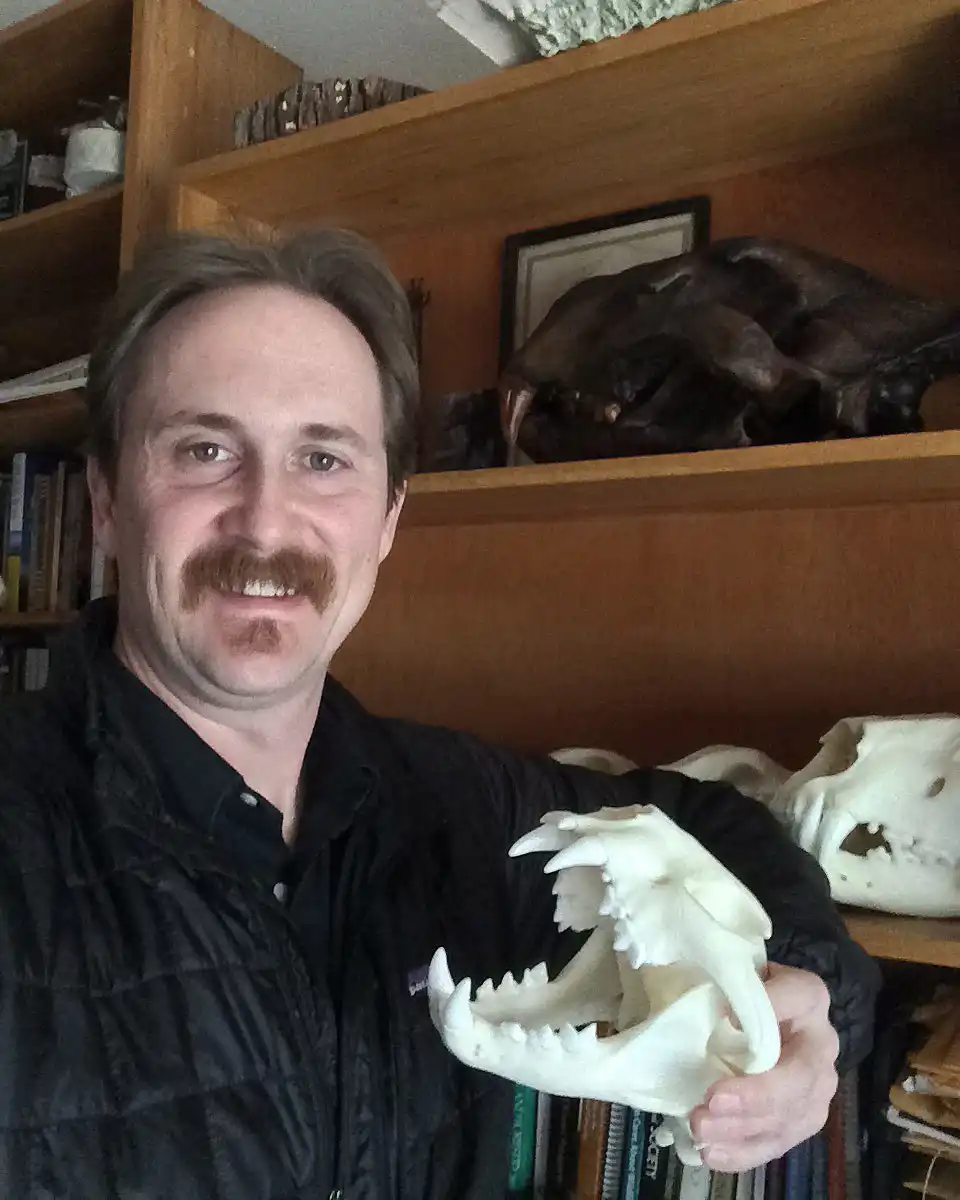John Cox

205 Thomas Poe Cooper Building
730 Rose Street
Lexington, KY 40546-0073
Last Revised: Aug 29th, 2023
Professional Biography
Current Major Research Project Status
- Population Dynamics and Resource Selection of Reintroduced Elk in Kentucky (data collection/publication)
- Chronic Wasting Disease Susceptibility of Wild Cervids in Kentucky (data collection)
- Population Status of Mountain Lions in the White Mountains of Arizona (data collection)
- Ecology of the Martial Eagle in the Mara Region of Kenya (analysis/publication phase)
- Avifaunal response to urban reforestation and wetland construction (fieldwork/analyses)
- Impact of Timber Harvest Breeding Birds in a Mixed-mesophytic Forest (early publication phase, long-term fieldwork/analyses)
- Impacts of Fire, Herbivory, and Competition on select hardwood trees in the Inner Bluegrass Region of Kentucky (early publication phase, long-term data collection)
- Impacts of Herbivores on Select Tree Seedlings Replanted on Coal Surface Mines (long-term fieldwork)
Course Instruction
FOR 101:
Intro Wildlife Conservation
(3)
Course Description: An introduction to the history, concepts, and principles of wildlife biology and management. The role of wildlife in ecological systems and human-altered environments will be discussed. Lecture, two hours; laboratory, two hours per week.
Term(s) Taught: Spring
Term(s) Taught: Spring
FOR 365:
Wildlife Assessment
(2)
Course Description: An experiential learning opportunity designed to introduce students to basic concepts of forest wildlife management. Become familiar with common techniques to determine wildlife presence and relative abundance. Learn how forest management practices can directly and indirectly impact many wildlife species and their habitats in Kentucky. Understand how forestry and wildlife professionals manipulate forests to meet wildlife management and biodiversity conservation objectives at various spatial scales. Learn the direct and indirect impacts of some wildlife species on forest management. Class will be conducted in an outdoor forest setting often in steep terrain and inclement weather.
Term(s) Taught: Spring
Term(s) Taught: Spring
FOR 435:
Conservation Biology
(3)
Course Description: Review the ethical foundations of conservation biology, discuss the scientific evidence that illustrates recent rapid loss of biological diversity at multiple spatial and temporal scales, identify and elaborate on the causative factors of biodiversity loss, discuss various strategies for conserving biodiversity, and discuss ways that various human cultures and associated resource use influence non-human life and the human societies that depend on them. Conservation biology is multidisciplinary in scope and discussion topics include wildlife management, restoration ecology, economics, ethics, geology, evolution, philosophy, phylogeny, taxonomy, genetics, behavioral ecology, population ecology, disease, sociology, sustainable living, and human dimensions. Conservation topics will be global in scope, with well- studied case examples used to support class activities.
Applies to the UK Core requirement: Global Dynamics
Term(s) Taught: Spring
Term(s) Taught: Spring
FOR 520:
Mammals of the Eastern United States
(4)
Course Description: Covers the evolution, taxonomy, biogeography, biology, and natural history of mammals, emphasizing North American fauna. All mammalian orders extant (and extinct) in North America will receive coverage, emphasizing major morphological differences among groups, and physiological and behavioral adaptations to North American climates and ecosystems. Lecture discussions will cover major physiological systems (digestive, excretory, reproductive, etc.), energetics, diet and nutrition, reproductive patterns, and anatomical differences unique to each taxonomic order. Laboratory exercises will stress identification of extant mammals occurring in eastern North America, with a heavy emphasis on species occurring in Kentucky and adjacent states.
Term(s) Taught: Fall
Term(s) Taught: Fall
FOR 550:
U.S. Biodiversity Hotspots
(3)
Course Description: This is a 3-hour travel-based experiential learning course designed to immerse students in some of the most biodiverse areas in the U.S. Students will experience and learn about the ecology, geology, conservation, and management activities and policy of these areas by: 1) visiting several representative protected areas (e.g. National Parks, National Forests), and 2) interacting with resource managers and land stewards that work on landscape and local conservation and management issues to get a feel for the challenges and opportunities in protecting biodiversity and accommodating human needs. Student funded domestic travel is embedded with this course. There is a cost of approximately $600 for this trip.
Term(s) Taught: Spring
Term(s) Taught: Spring
FOR 599:
Environmentalism: Survey of a Sociopolitical Movement
FOR 770:
Ecology, Management, and Conservation of Wild Canids
FOR 770:
Ecology, Management, and Conservation of Wild Felids
FOR 770:
Ecology, Management, and Conservation of Neotropical Migrant Songbirds
FOR 770:
Ecology and Management of Wild Ungulates in North America
FOR 770:
Where in the World is Aldo (Leopold)?
